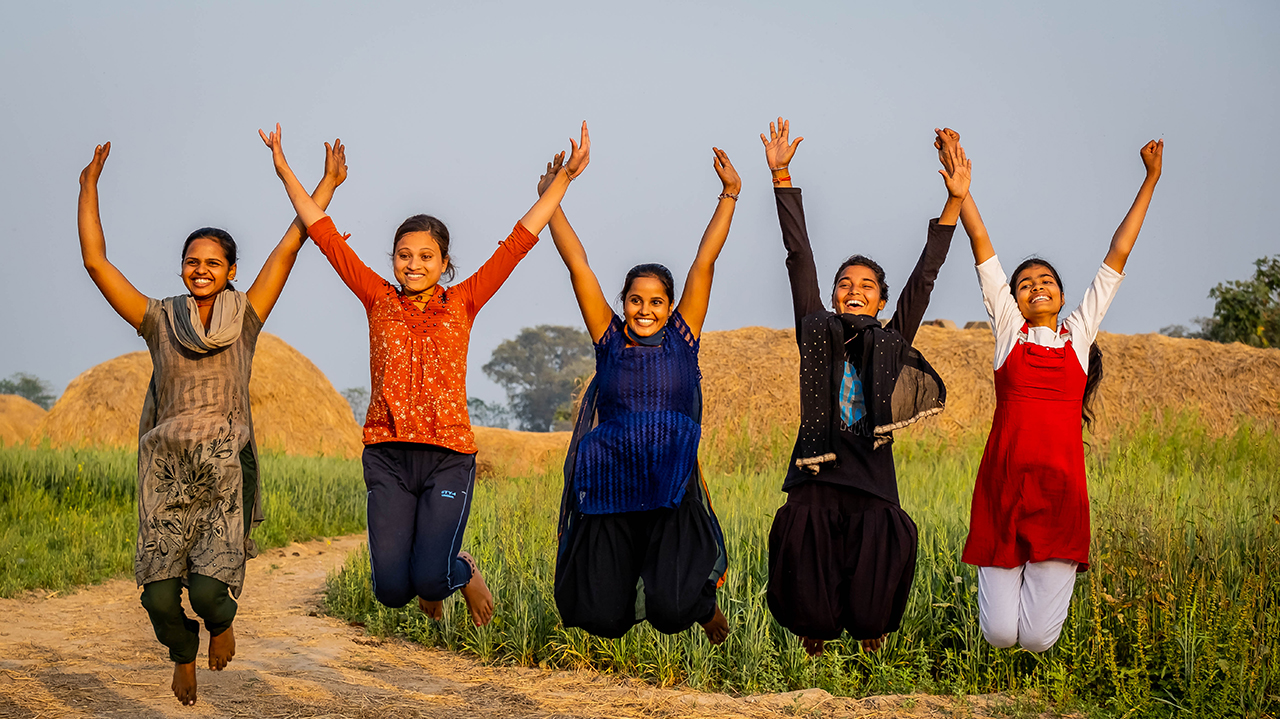Self-efficacy – A Step towards Empowerment

Building self-efficacy among adolescent girls can be a potent tool for her to break barriers of discriminations that hinder her growth and inhibit her to live a dignified life in adulthood.
‘National Day of the Girl Child’ is celebrated in India every year on 24th January to draw attention towards the importance of the girl child. Initiated in 2008 by the Ministry of Women and Child development, Government of India, the day is marked to spread awareness about myriad inequalities faced by the girl child; their rights; and the importance of female education, health & nutrition. As the nation gears up for the National Girl Child Day, we take a closer look at PCI India’s aspiration to embrace each girl child and walk her through life skills that enable her to grow up into ‘a master of her own destiny’. Over the years we have advocated voices of the girl child and concerted efforts of various development partners & the government towards bringing gender equality – right from her birth up to adulthood. PCI India has been amplifying its commitment to raise awareness among adolescent girls & their parents. It has been working towards bringing a promising shift in the lives of adolescent girls with the introduction of life skills modules & various trainings. thereby strengthening their agency that capacitate them to undertake introspection on their rights and future aspirations. TARA – A Model of Self-Reliance Continuing our commitment to nurture the girl child, our project TARA (Transformative Action for Rural Adolescent Girls) – a model for adolescent girls’ empowerment in Rohtas district of Bihar, has reached out to 1,205 girls between the age group of 14 and 19 and transacted them through life skills curriculum, thus leading them towards a brighter future. Implemented during July 2019 to December 2020, the project was designed with an objective of strengthening overall well-being and self-reliance of rural adolescent girls so that they are better prepared to enter workforce with honed life skills, thereby creating next generation leaders of change. The project’s theory of change was based on the premise that imparting life skills training through customised P.A.C.E.[1] curriculum to adolescent girls will drive them towards prosperity and growth. The curriculum encompassed 5 thematic areas including: Health & Nutrition, Employability, Entrepreneurship, Empowerment, and Self-Efficacy. TARA Groups were formed comprising 20-25 unmarried girls in the age group of 14-18 years. TARA clubs were formed as well. Girls were trained on various aspects of life such as development of agency through decision-making, communication, negotiation, improving employability, and improved knowledge of health and nutrition (HN) behaviours and practices. The project resulted in, ‘holistic development of the adolescent girls and essentially led to breaking the cycle of unawareness among them in terms of employment opportunities and enabled them to upskill themselves for future aspirations.’ Inter-generational Touch Points TARA’s distinctive mechanism of creating inter-generational touch points by leveraging on the SRLM’s network of women’s collectives for back bracing these young minds bolstered the project’s replicable long-term impact. By virtue of the project, PCI India has engaged government officials, policy makers, stakeholders, key female influencers in rural settings and parents for jointly working towards empowerment of the girl child, thereby creating next generational girl leaders, who now stand up for themselves, their rights & their future.- Tushar Kumar is associated with PCI India as Program Manager – Strategic Partnerships & Systems
Powered by Social Snap
Powered by Social Snap
